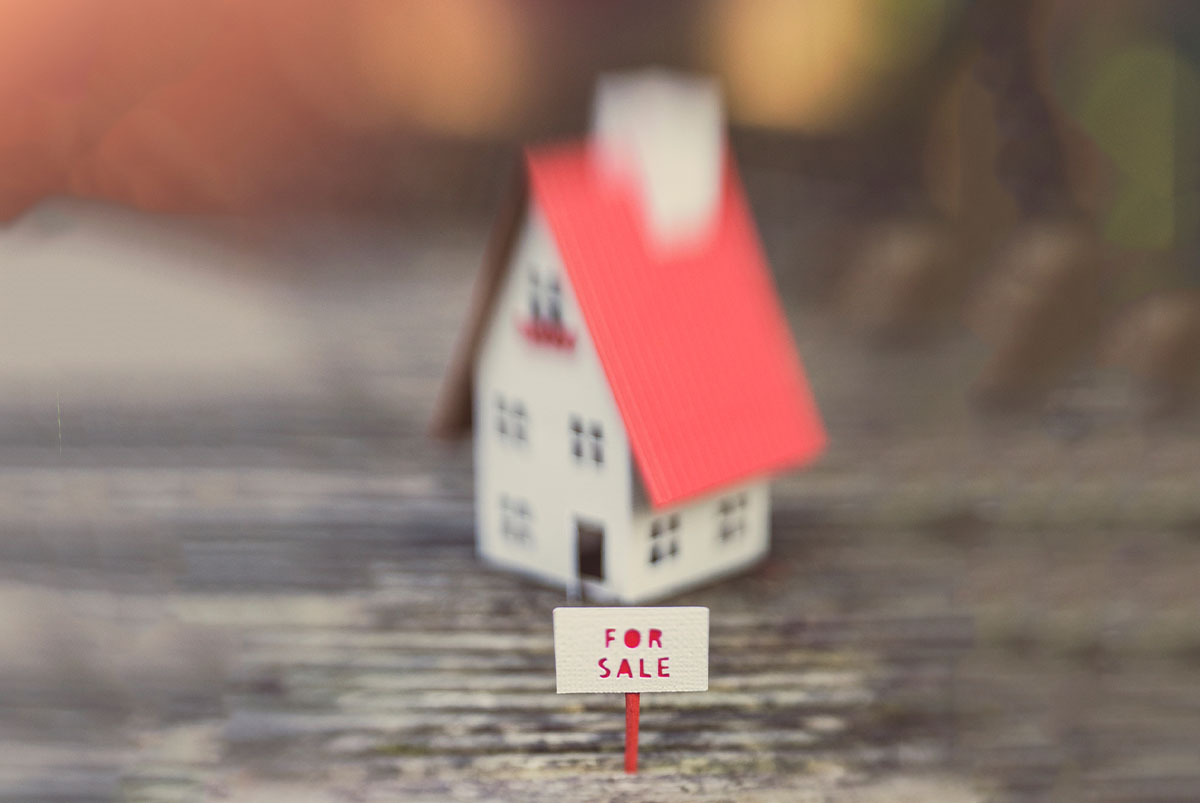Ready To Buy a Home?
Get Approved to Buy a Home
Rocket Mortgage® lets you get to house hunting sooner.
When most people think of buying a house, they picture browsing real estate listings online and touring a seller’s home with a real estate agent. However, there’s another option: purchasing a home through an auction.
While the process can be more complicated than with conventional home sales, auctions do present opportunities for savvy buyers. In this guide, we’ll explain how auctions work, the risks and advantages that come with these homes and share some actionable tips.
How Houses End Up at Auction
There are two main ways houses usually end up being for sale at auction: foreclosure and property tax default.
Foreclosure: When a homeowner defaults on the mortgage (they stop making payments), the lender will start the foreclosure process. If the homeowner isn’t able to make up their payments, the lender may seize the home and put it up for sale.
Property tax default: When the homeowner fails to pay property taxes, the taxing authority – usually the state or federal government – places a tax lien on the property. If the homeowner still doesn’t pay the taxes owed, the home can be sold at auction.
Get approved to buy a home.
Rocket Mortgage® lets you get to house hunting sooner.
How Does Buying a House at Auction Work?
Buying a house at auction typically works much like any auction: bidders place bids, and the highest bid wins. But sometimes, it isn’t so simple. Each type of auction works a little differently in how bids are made and what the minimum bid can be. Also, the exact rules vary with each auction company and each state or municipality in which the auction is held.
Here are some of the real estate auction and bidding types you may encounter and how they work:
Auction types
For the most part, real estate auctions can fall into three categories:
- Absolute auction: This is how most of us imagine auctions to work. At an absolute auction, the item up for bid is awarded to the highest bidder.
- Minimum bid auction: As the name suggests, the auctioneer sets the minimum bid for an item. If no one meets or exceeds the minimum, the property doesn’t sell.
- Reserve auction: At a reserve auction, the seller sets a reserve price that’s not made public. Bidders submit bids, and the highest bidder wins the auction if it meets the reserve price. If no one meets the reserve price, the property doesn’t sell.
Bidding types
Now that we know a bit about different types of auctions, let’s look at common bidding types:
- Open bidding: Open bidding is the most straightforward type of bidding. Bidders raise their paddles to indicate interest, and the highest bidder wins.
- Blind bidding: Blind bidding is when bidders write down their bids and submit them to the auctioneer. The highest bid wins the auction.
Pros and Cons of Buying a House at Auction
To help you decide if buying a house at auction is something you should consider, we’ve put together a list of the biggest pros and cons.
PROS of buying a house at auction👍
When a lender or tax authority puts a home up for auction, they’re usually looking to cut their losses and recover the remaining balance, which typically translates to a discounted house.
Generally, there will be far fewer bidders at an auction than there would be if the same property were sold through a traditional real estate agent. This is especially true in a seller’s market.
Full payment for homes purchased at auction are usually due within 30 days of the auction. This can accelerate time lines and get you in the home faster than a more traditional closing.
CONS of buying a house at auction👎
With very few exceptions, homes at auction are sold “as is.” There are no opportunities for inspections or repairs.
To bid on a house at an auction, you must prove you have the money to pay for it right away. You’ll typically bring the earnest money deposit in cash or certified funds when you register. If you win, you’ll need to pay the remaining balance in 30 days, so you’ll need access to cash to complete the transaction.
Bidding on a home in real time and seeing what others are bidding can be a dramatic process that leads to emotional decision-making. Make sure you don’t get swept up in the drama and make an offer you’ll come to regret later.
How Much Should You Bid on a Property at Auction?
Auctions can be difficult to navigate from a pricing perspective because of the unpredictability that comes with bidding against other humans, whether in an open or closed setting. Regardless of the type of auction you’re participating in, here are some tips for deciding how much you should offer.
- Do your market research: How much do you objectively think the home could earn on the open market? What’s the neighborhood like, and what do the real estate comps tell you? A real estate agent can be an invaluable partner in this process.
- Decide if you like the house or the deal: With auctions, it can be tempting to daydream about the financial value you could get with a good deal. But you need to be honest with yourself. Would you still like the home if you had to pay what you’d consider full price? Do this ahead of time, so that if there’s more interest in the property than you expected, you’re not trying to sort out how much you like the home in real time during an auction.
- Set your maximum and stick to it: Auctions can get emotional, especially if you’re directly bidding against someone. Set your limits beforehand. This is a way to protect yourself from winning the home but putting yourself in a bad financial situation long-term.
- For blind bids, start with your best offer: With blind bids, depending on how an auction is run, you may not get the opportunity to submit a counteroffer. You don’t want to miss out on a house by a small amount when you would have been willing to pay significantly more.
How To Buy a House at Auction
Most people get a bit jittery about their first auction. To help calm any pre-auction nerves, you should know what to expect when you buy a house at auction.
1. Find auctions near you
To find a real estate auction, do a quick online search for “real estate auctions” in the county you’re interested in, “real estate auctions near me” or “online real estate auctions.” You’ll likely come across several websites that list upcoming auctions in your area and online.
You can also check with your local county clerk’s or recorder’s office to see if they have any upcoming auctions.
2. Research the property
You typically won’t be able to inspect the property before the auction. But you can learn a lot about a property from the outside. Consider driving by the home and looking up old listings online.
The properties sold at auction are often distressed and require rehabilitation after the sale, so there’s a good chance you might be purchasing a home with extensive – and expensive – damage.
You should connect with a real estate professional who can guide you through a title search and check for any claims against the property. It might also be helpful to learn how much the homeowner owed their creditor(s) and any other pertinent facts.
3. Register for the auction
To register for an auction and bid on a property, you’ll need to have specific documentation ready, like proof of identity, address and funds. And you’ll probably need to register in advance.
Here are some of the documents you may need to provide:
- Proof of identity: This can include your driver’s license, passport or other government-issued identification. You’ll need to submit entity documents (such as articles of incorporation or organization) if you’re bidding under a company name.
- Proof of address: A recent utility bill or other documents can indicate your current address.
- Proof of funds: This can include a bank statement, a letter from your banker or another document that proves you have the money to purchase the property.
- Refundable deposit: You’ll probably need to make a refundable deposit to attend the auction. The deposit usually equals 10% of the property’s potential purchase price, but the percentage could be lower or higher depending on the state.
4. Attend the auction and place your bid
How you place a bid will differ slightly depending on the type of auction you attend.
When you attend an auction in person, you usually receive a paddle with your bidder number. An auctioneer starts the bidding at a predetermined price and takes bids from the audience. When you want to make a bid, you raise your paddle. If you place the highest bid and win the auction, you’ll receive a certificate of sale.
But the deal isn’t done yet.
To finalize the deal, you’ll need to receive the certificate of title from the seller proving who the owner is and if there are liens or other claims against the property. With the certificate of title in hand, you can buy title insurance to protect yourself in case there are any undiscovered claims against the property.
While online real estate auctions work the same way (though you should familiarize yourself with their requirements before you make your first bid), there are some key differences.
First, you can attend an auction from the comfort of your home or your favorite coffee shop. And online auctions can last for several days. They don’t end just because bidding has stopped.
Make sure you know how to make payments if you win an online auction, since payments are typically due 24 – 48 hours after the auction closes.
How To Pay for an Auction Home
In most cases, the winning bidder must make a deposit that’s typically 10% of the final purchase price immediately after the auction, and the rest is due within 30 days.
You can pay the remaining balance with cash, certified funds or bank financing. Cash is the simplest option, but it may not be feasible for all buyers. Certified funds are typically money orders or cashier’s checks issued by a bank or other financial institution. And bank financing may be another option.
When an auction allows financing, traditional lenders often can’t issue a loan for a home sold at auction quickly enough to make it a viable funding source.
Final Thoughts on Buying a House at Auction
Real estate auctions can be an exciting way to get a great deal on a property. But they’re not for everyone. Before you start bidding, make sure you understand the process and that you’re taking on some risks. With a little research and prep work, you could become the proud owner of a new home for less!
Home is worth it.
The mortgage process can be exciting, and we’ll be with you all the way. Take the first step to owning a home. You’ll be glad you did.
The Short Version
- Real estate auctions are becoming more popular due in part to the current housing market. They may seem intimidating, but they’re not that different from other auctions
- Advantages of buying a home through auction include the potential for less competition and to get a discount. Risks include buying a home without an inspection
- To register for an auction and bid on a property, you’ll need to collect and have documentation ready, like proof of identity, address and funds




